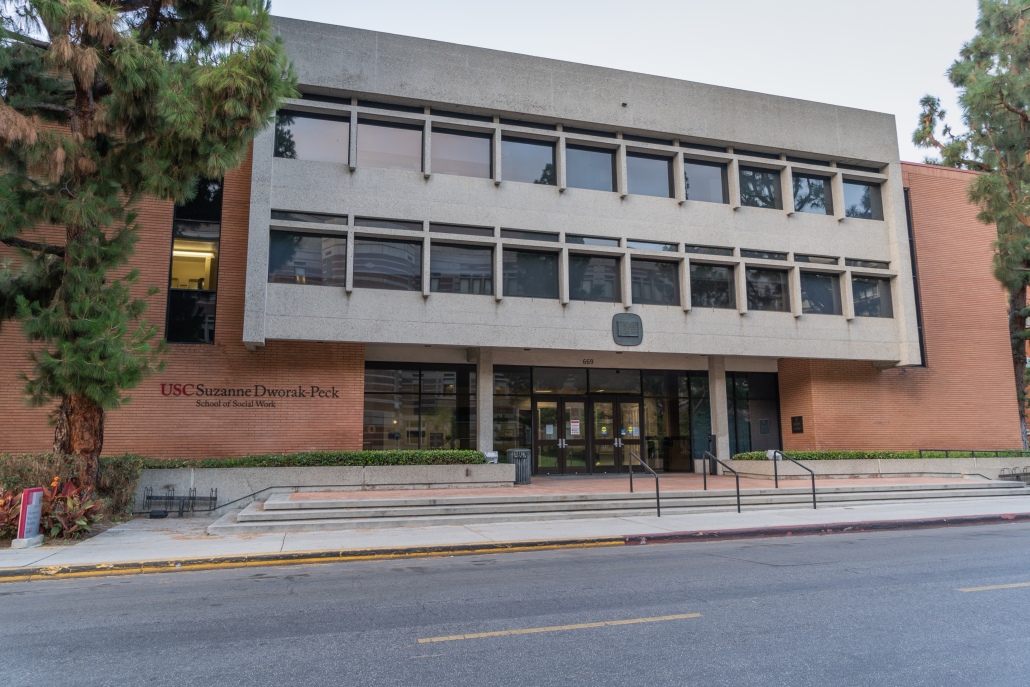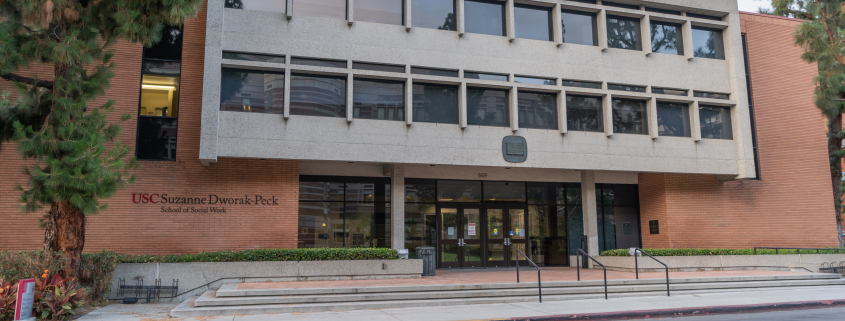USC Homelessness Initiative faces underfunding

With homelessness on the rise throughout Los Angeles, the USC Homelessness Initiative began in 2016 and initially prioritized on-campus homelessness but soon expanded to the greater L.A. community and research about creating necessary interventions.
But earlier this year, former director Brenda Wiewel said she was informed that the group will “sunset” due to a lack of funding.
“It just got to a point over the last year where I was just told that there wasn’t sufficient funding to have it go one more year,” Wiewel said. “I was told that that decision had been made to sunset.”
Wiewel said she was “laid-off” from the position and told the initiative needed to close.
“The structure of an actual initiative that brings together the big picture as kind of a hub or clearinghouse for the University as a whole — I don’t see that happening,” Wiewel said. “There’s still a number of projects but as far as I’m concerned it’s not under the umbrella of an initiative anymore.”
USC in a statement to the Daily Trojan, said the initiative is in transition, not sunset as its community partnerships, research and policy initiatives continue.
“The USC Homelessness Initiative, including its website and other resources, [are] currently in transition as we seek to deepen our collaboration within the University and with our partners across Los Angeles,” the statement read.
In the last year, an array of factors led to funding challenges. Alongside changes in administrative leadership, the initiative’s source of funding — donations from the different schools within USC — soon became unstable.
“Over the years, especially with a whole variety of different issues that came up, the schools began to have a lot less money available,” Wiewel said. “Then the provost changed and the president changed, so the original champions were no longer there. It wasn’t that the other people didn’t care but that they hadn’t actually initiated it.”
While it operated, the initiative aimed to mobilize students to become involved in community-based work through internships, volunteer opportunities and professional training for future careers.
Josh Gonzales, a second-year graduate student, was placed in the initiative as part of the Master’s of Social Work program this past summer. The budget cuts occurred “pretty much right after [he] started,” so he was not directly able to work with the initiative.
Gonzales said he found news of the initiative’s sunset “frustrating” given how prevalent an issue homelessness remains in L.A. However, he said he feels these changes can further inspire people to help tackle homelessness.
“It’s a little bit frustrating but it’s also really motivating to continue to do the work because there’s no longer this official, active initiative behind the work,” Gonzales said. “It feels all the more urgent and important to continue the legacy of projects that it has.”
Senior Kevin Maxwell, who became involved in the USC Homelessness Initiative through a class, was drawn to the organization because he has personal experiences witnessing homelessness among family members. He said the budget cuts were “disappointing” and could negatively impact the University’s response to the housing crisis.
“It just takes away from USC’s ability and participation in trying to raise awareness about homelessness,” Maxwell said.
Wiewel said several student-led projects and events were supported by USC Homelessness Initiative, including Trojan Shelter and Homeless Awareness Week. She said the initiative effectively connected different groups.
“I keep hearing still about people who learned about each other’s projects and started working together and created new things out of that so I felt like that was worthwhile,” Wiewel said. Beyond volunteering or research projects, the initiative also oversaw the creation of a free online library guide and informative YouTube channel.
For Wiewel, the initiative’s role as the central hub for other programs to filter through or receive support had a “snowball effect” in engaging people.
“When you’ve got something that’s sanctioned from the very top, it really motivates everybody,” Wiewel said. “It’s like, this is our priority as a University, and so people who wanted to do it but might not have felt like they had the authority or the authorization for it got involved in ways that they might not have before.”
Despite the uncertain status of the initiative, optimism remains about its legacy through ongoing programs. Dr. Laura Mosqueda, former dean of the Keck School of Medicine, commended USC Street Medicine, a program in the Department of Family Medicine that brings together healthcare professionals to provide and advocate for medical care for the homeless.
“[The USC Homelessness Initiative] really underscored the fact that it takes a village, and that this is a really complicated problem, and that it’s great if the medical school [helped] people to get medical care,” Mosqueda said. “But then the work that was being done by the other schools was equally important.”
Other projects on campus preserve USC Homelessness Initiative’s purpose, such as the Center for Artificial Intelligence for Society, a collaboration between the Viterbi School of Engineering and the School of Social Work.
“They’re doing some really groundbreaking research in the area of homeless youth, as well as how to deal with racial equity,” Wiewel said. “They’ve done some beautiful work.”
For Gonzales, the initiative’s “sunset,” as Wiewel said, does not signal an end but the possibility for new projects to pick up where they left off, such as establishing a campus chapter of Abundant Housing LAs, a policy-focused nonprofit. In addition, he is working on a project called the Trojan Homelessness Response with junior Pratik Thakur, another student formerly involved with the USC Homelessness Initiative.
Wiewel said the many accomplishments made by the Homelessness Initiative allowed for a sufficient conclusion after a successful run.
“Over the last five years, a lot of good work has been done,” Wiewel said. “A lot of things had been starting and were continuing to grow. So I felt like, not that there couldn’t still be some things to work on, but I kind of felt like it wasn’t a bad time to transition.”
Disclaimer: Pratik Thakur is an assistant sports editor with the Daily Trojan.

